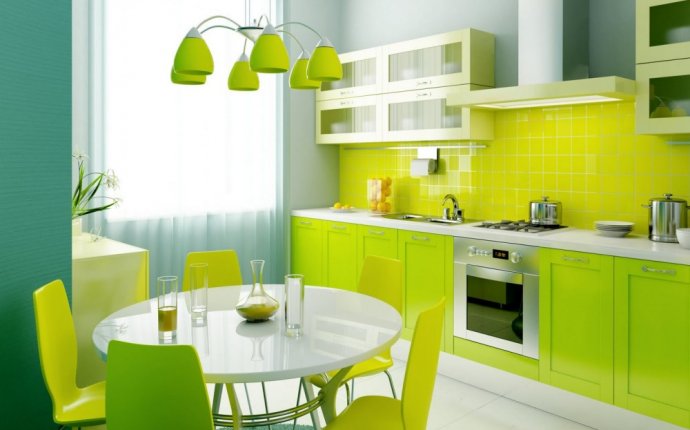
Feng Shui Your Kitchen
Homeowners planning to build or remodel their kitchens might not immediately think of following a New Age design trend that believes health and happiness can be determined by how a house is sited and where its rooms are placed. (Not to mention the astrological aspects at the time of the home's construction.) But homeowners concerned about creating just the right "feel" in the room where they cook, snack and socialize are increasingly turning to the Chinese practice of feng shui to make their kitchens as inviting as possible.
"When I see a kitchen laid out in an area associated with communication and just a lot of happy energy, I'll ask the owners, 'When you have a party, do people sit on the counter here and refuse to budge?'" says Kartar Diamond, author of Feng Shui for Skeptics and The Feng Shui Matrix. "And they say, 'Yeah, how did you know?' Sometimes it doesn't even make sense, the kitchen is a little cramped to begin with, but people just gravitate to that good energy."
So how can feng shui principles channel that energy for your kitchen?
Deciding to tear down her old house and start fresh, Lanette Phillips-Hackwith of Pacific Palisades, Calif., sought Kartar's help before the design of her new house had even begun. Kartar determined the most propitious placement of rooms in the layout of the house, along with aiding in the selection of materials representing the five Chinese elements of wood, fire, earth, metal and water within a home.
"Other rooms in a house start as empty spaces, " Kartar says, "but the kitchen nowadays is actually a combination of elements. You've got fire from the stove, tile or granite counters, which is earth; water running through the sink; metal in the appliances — four of the five elements all going at once. And, in theory, they should all cancel each other out."
But, experts say, that's not what happens, because every kitchen has different specific requirements for a balanced feel. Janice Sugita, a Beverly Hills-based interior designer who has applied feng shui principles in her work for years, says designers need to determine those requirements, based on the kitchen's location and history, and "use more of the appropriate element to enhance the chi and make it favorable for the room."
Researching the particular histories of a home and its occupants are also seen as critical to the success of the feng shui approach.
"Feng shui takes into account the year the house was built, the current year and the direction the house faces, down to the degree of the compass, " Janice says. "Every house has a blueprint of energy. The history of the owners of a house is important because it can be used to verify the accuracy of our reading of the home's energy."
"You usually don't want a kitchen in the center of the house, which might happen when people in an existing house with the kitchen at the back add a family room behind it, " Kartar says.
When Kartar analyzed the layout of Lanette's existing house, she concluded that it increased the risk of kitchen accidents. She recommended changing the location of the kitchen in the new home, replacing it from the risky location of the house to a less-used closet and washroom.
"We repositioned the kitchen, " Lanette says, "and put the sink by a window, which, within our compass reading, is good."
She reports that the new arrangement works wonders: "The window over the sink is open to the sky, and the blue of the wall matches the blue of the sky. There's a high feeling to it, an open feeling, and I love it. It's such a difference."
Kartar says the requirements for balance at a particular location come into play in decoration.
"That can be the tiebreaker when we pick colors for a kitchen, " she says. "If I see a kitchen needs fire, well, hey, maybe we can have a red kitchen. If it needs metal, maybe we'll keep the kitchen white or gray."
Here are some tips for hiring professional designers from Janice and Kartar:
Check credentials. Stay away from "someone foolish enough to think they can learn feng shui completely from books, " Kartar says. Serious prospective feng shui practitioners "seek out feng shui masters and make a financial investment in their learning."
Avoid "remedies." "It should be understood, " Kartar says, "that you are not required to buy Chinese knickknacks, crystals, flutes, Buddha statues or wind chimes in order for your house to have good energy."









